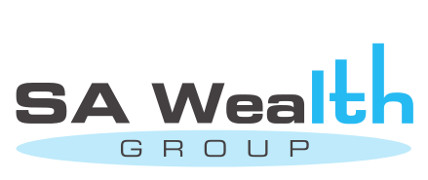Tax treatment of COVID-19 support payments
For most Australians, this tax time will be unlike any other.
If you’ve lost your job, had to work reduced hours due to COVID-19, or met other eligibility criteria, you may have received government assistance like JobKeeper, extra JobSeeker, or accessed some of your super early to help cover expenses.
So how will this new source of income affect your tax return—and do you need to disclose it?

JobKeeper payments
JobKeeper payments (up to $1,500 per fortnight) will be treated the same way as wages or income. This means these payments will be taxed and must be disclosed in your tax return.
If you’ve received JobKeeper payments from your employer, those payments will be included as part of your income statement which your employer provides to the ATO. You can view this statement in your MyGov account or your tax agent can access it on your behalf.
Be aware that if you previously earned less than the JobKeeper amount, your income may go over the tax-free threshold.
For example, if your salary increases from $800 to $1500 a fortnight as of March 2020 because of JobKeeper, you may be required to pay more tax due to earning a higher income. On the flip side, you may also get a larger refund if you earn more money but still fall under the $18,200 tax-free threshold.
JobSeeker payments
If you received a JobSeeker payment from Services Australia (previously known as the Department of Human Services), this amount will be taxed as regular income and will need to be included in your tax return.
The ATO should automatically populate this information for you under the 'government payments and allowances' section in your tax return. But it won't necessarily be there from 1 July 2020.
If you find that this information is missing, you or your tax agent will need to populate it yourselves or complete your tax return once the information appears.
Small businesses
If your business received JobKeeper payments to help make up for a fall in turnover, you’ll need to disclose these payments as part of the assessable income of the business for the financial year.
The ATO is also allowing businesses to vary PAYG instalments if the business believes that the current rate is too high given the effects of COVID-19 compared to the previous estimated tax for the year.
Insurance, redundancy and leave payouts
Any payments you may have received because your income was disrupted —such as an income protection insurance payout, sickness, or accident insurance claim—must be declared in your tax return in the normal manner for such payments. This also goes for a redundancy payout and paid leave.
As the tax treatment of these vary, it’s best to follow the instructions that are provided against each of these items if you are completing your own tax return, and talk to your tax agent.
Early release of super
If you accessed part of your super under the COVID-19 early release of super payment, you won’t be required to pay any tax on the payment so you don’t need to disclose it in your tax return.
It may be worth discussing your government support payments with your accountant or contact us on 08 8268 5160 to make sure you get maximum benefit with minimal workload.
Source : MLC Insights July 2020
Important information and disclaimer
This article has been prepared by NULIS Nominees (Australia) Limited ABN 80 008 515 633 AFSL 236465 (NULIS) as trustee of the MLC Super Fund ABN 70 732 426 024. The information in this article is current as at July 2020 and may be subject to change. This information may constitute general advice. The information in this article is factual in nature and does not take into account personal objectives, financial situation or needs. You should consider obtaining independent advice before making any financial decisions based on this information. You should not rely on this article to determine your personal tax obligations. Please consult a registered tax agent for this purpose. An investment with NULIS is not a deposit with, or liability of, and is not guaranteed by NAB or other members of the NAB Group. Opinions constitute our judgement at the time of issue. In some cases information has been provided to us by third parties and while that information is believed to be accurate and reliable, its accuracy is not guaranteed in any way. Subject to terms implied by law and which cannot be excluded, neither NULIS nor any member of the NAB Group accept responsibility for any loss or liability incurred by you in respect of any error, omission or misrepresentation in the information in this communication. Past performance is not a reliable indicator of future performance. The value of an investment may rise or fall with the changes in the market.


